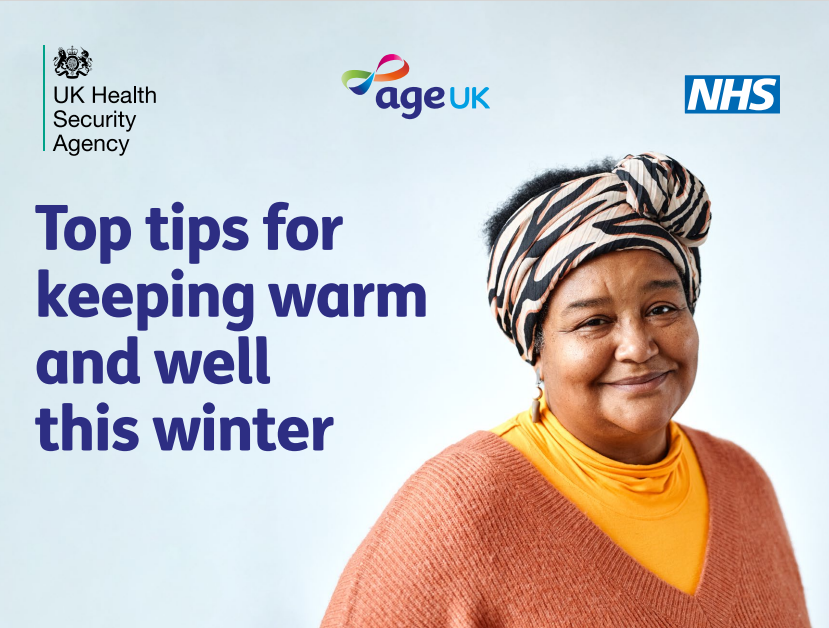KEEP WARM
You should heat your home to a temperature that is comfortable for you. In rooms you mostly use such as the living room or bedroom, try to heat them to at least 18°C if you can, particularly if you have a pre existing medical condition. You should also keep your bedroom windows closed at night. Exposure to low indoor temperatures can have a serious impact on your health as you get older. Wearing several layers of clothing will keep you warmer than one thicker layer. Top tips for keeping warm and well this winter.
GET FINANCIAL SUPPORT
There are grants, benefits and sources of advice available to make your home more energy efficient, improve your heating, or help with bills. There are also support measures in place to help with the cost of living. For further advice on these support measures, visit Age UK’s website -www.ageuk.org.uk/financial support or call 0800 169 6565 and quote ‘WINTER’.
This leaflet was prepared by UK Health Security Agency (UKHSA) and Age UK. If you have questions about this publication please contact enquiries@ukhsa.gov.uk. Age UK, 7th Floor, One America Square, London EC3N 2LB. Registered charity number 1128267.ID204880 09/22
For more information about how to stay warm and well in winter visit Age UK’s website – www.ageuk.org.uk/winterprep or call 0800 169 6565 and remember to quote ‘WINTER’.
LOOK AFTER YOURSELF.
• If you’re aged 50 or over, or a carer, you’re eligible for a free flu jab and an autumn COVID-19 booster this winter. Contact your GP or pharmacist or visit the NHS website www.nhs.uk to learn more.
• Don’t delay treating minor winter ailments like colds or sore throats. Visit your local pharmacist for advice and treatment.
• If you are feeling down or out of sorts, chat to someone or contact your GP.
• Wear shoes with good grip when you go outside to avoid slips and falls on slippery or icy surfaces.
• When you’re indoors, try not to sit still for more than an hour or so. If you find it difficult to move about, stretching your arms and legs can also help keep you warm.
• If you have visitors, it can help stop the spread of germs to ventilate the room for a few minutes before and after they arrive. You might be more comfortable leaving the window open during their visit, if it’s not too cold.
• If bad weather is forecast, check you’ve got enough medication and food in case it’s harder to leave the house.
• If you are worried about your health, contact your local pharmacist, 111 or your GP, who will all be able to offer advice and support. In an emergency dial 999.
PREPARE YOUR HOME
• Have your heating and cooking appliances checked by a Gas Safe registered engineer to make sure they are working safely.
• Contact your water and power suppliers to see if you can be on the Priority Services Register, a free support service that helps people in vulnerable situations.

